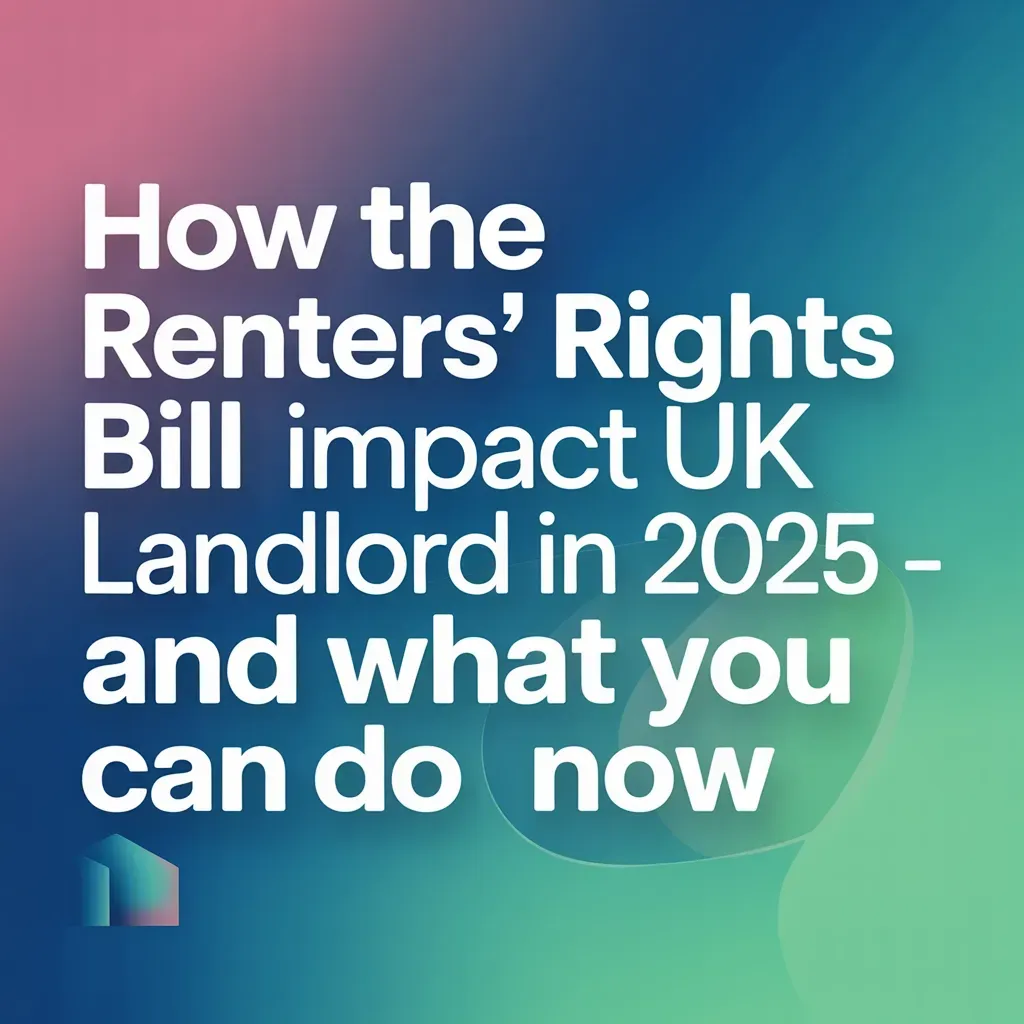
How the Renters’ Rights Bill Will Impact UK Landlords in 2025 – And What You Can Do Now
The private rental sector in the UK is about to see one of its biggest shakeups in decades. The Renters’ Rights Bill, aiming for implementation in the second half of 2025 or early 2026, promises to reform the landlord-tenant relationship from the ground up. But the real story here isn’t just about traditional letting—the biggest winners could be landlords who’ve made the shift to serviced accommodation and professional short-term let management.
Whether you’re a seasoned property owner or new to the rental market, if your portfolio still leans on long-term tenants, now’s the time to look at why so many landlords are switching to flexible, hands-off Airbnb management with companies like Statera Estates. Here’s what’s changing—and how you can turn new regulations into an opportunity, not a headache.
What’s Changing: The Renters’ Rights Bill Highlights
1. The End of Section 21 “No-Fault” Evictions
Section 21 is being scrapped. This means landlords can no longer ask tenants to leave at the end of a fixed term “no fault” basis. Reclaiming property will only be possible through limited, specific legal grounds—things like serious rent arrears, proven anti-social behaviour, or if you’re planning to sell or move in yourself. For landlords relying on flexibility or frequent tenancy changes, this is seismic.
2. Out with Fixed-Terms, In with Periodic Tenancies
No more fixed-term contracts. All new tenancies will be periodic (rolling) from day one. Tenants can give you two months’ notice at any time—but as a landlord, your route to regain possession becomes more restricted and lengthy, especially with the end of Section 21.
3. Advance Rent Payments—Now Limited
If you’ve relied on six months upfront, or advance rental payments to mitigate reference or credit risks, those days are gone. The new rules will limit advance payment to the first period only, with tenancy agreements requiring multiple months upfront deemed void.

4. Tighter Rent Increase Scrutiny
The Bill will enable tenants to challenge rent hikes they feel are excessive. Tribunals will step in if it looks like you’re using above-market rises as a sneaky way to encourage tenants to leave. All increases must be fair and based on the actual local market rate.
5. Compliance and Administration Get a Makeover
A new Private Rented Sector Database will log every landlord and property. You’ll need to register and maintain up-to-date proofs of compliance, with data available to both tenants and local authorities. There’ll also be a new ombudsman, focused on quick and binding tenant dispute resolution.
6. No More Discriminating Against DSS or Families
It will be illegal to refuse tenants just because they receive benefits or have children. This change might require some major adjustments in your current screening and marketing practices.
How These Changes Will Affect Traditional Landlords
If you’re running a classic buy-to-let or relying on a letting agent to fill your property year after year, this Bill will flip your world upside down. Here’s what most landlords are worried about:
Loss of control: You no longer have flexibility if a tenant becomes difficult or circumstances change.
Extended void periods: If a tenant leaves unexpectedly, you deal with lost income and more effort finding a replacement (while keeping up with all the new rules).
Admin overload: More paperwork, higher compliance costs, improved record-keeping—the hidden burden really adds up.
Cash flow instability: Advance rent bans and stricter payment rules make things riskier for anyone working to tight margins or with non-traditional tenants.
The Smart Alternative: Switching to Serviced Accommodation Management
Now for the good news: These legislative changes are focused entirely on the traditional long-term private rented sector. Serviced accommodation and short-term lets (think: Airbnb, Booking.com, flexible corporate stays) aren’t affected by most of this new regime. Here’s why more landlords are making the switch with Statera Estates:
1. Complete Flexibility—No Section 21 Needed
Short-term lets aren’t covered by the Housing Act in the same way as Assured Shorthold Tenancies (ASTs). That means you can control booking length, select your guests, and regain possession whenever you want—without a legal battle.
2. Strong, Predictable Cash Flow
Serviced accommodation almost always delivers a higher annual yield compared to standard letting, even after fees and management costs. Our data shows landlords see 2-3x more net income compared to old-school rental models. With dynamic pricing and high occupancy, void periods drop dramatically.

3. Hands-Off, Hassle-Free
Statera Estates handles everything: guest vetting, marketing, cleaning, maintenance, regulatory paperwork, payment processing—and you monitor it all via a transparent online portal. That means less stress and more time for what matters most to you.
4. Compliance Covered
Short-term lets have their own set of safety and insurance checks—but nothing like the hands-on micromanagement that the Renters’ Rights Bill will now demand of traditional landlords. No new ombudsman. No advance rent headaches. No fixed-term paperwork. All compliance handled for you, every guest, every stay.
5. Attract a Different Kind of Resident
Short-term serviced accommodation attracts professionals, holidaymakers, and those seeking flexible stays. This typically means less wear-and-tear, fewer tenant disputes, and fewer delays in regaining vacant possession.

What Should Landlords Do Now?
If you’re not ready for a tidal wave of new regulation, compliance risk, and reduced flexibility—do what hundreds of savvy landlords are already doing:
1. Get an Appraisal for Your Property as a Short-Term Let
Discover its true earning potential versus the long-term market. You might be surprised how much more you could earn.
2. Review and Revise Your Strategy
Switching to serviced accommodation isn’t just about better income—it’s about being on the right side of new legislation. Review your property’s location, suitability, and get honest advice from seasoned professionals about its potential.
3. Partner with a Specialist
Running an Airbnb or short-let successfully demands time, tech, constant guest communication, marketing, and legal know-how. Letting a specialist like Statera Estates handle it means you skip the learning curve, remain compliant, and maximise returns.
4. Prepare for the Transition
If you have existing long-term tenants, now is the time to plan your wind-down or transition period. Work with legal professionals to ensure you exit or alter contracts properly when current arrangements end and position your property for the short-let market.
5. Stay Informed
Keep an eye on the progress of the Renters’ Rights Bill and related legislation. Legislation can evolve, and the lines between letting sectors may shift over time.
The 2025–2026 Timeline: Why You Can’t Wait
With the Renters’ Rights Bill moving fast through Parliament and a “big bang” launch expected from the second half of 2025, there’s precious little time to adapt. The transition for traditional landlords will be challenging and costly—so the earlier you move to a future-proof model (like fully-managed serviced accommodation), the more options and advantages you preserve.
The market is only going to get more competitive as more landlords make the jump. Don’t wait for the regulatory wave to hit—put your property portfolio on a stronger, more flexible footing now.
Final Thoughts: Turn Change Into Opportunity
The Renters’ Rights Bill marks a new era for landlords—but you don’t have to navigate it alone. By transitioning from traditional long-term lets to fully managed short-term accommodation, you can sidestep the most damaging regulatory changes, protect your financial future, and enjoy true peace of mind.
Want to discover what your property could earn—and get a game plan for 2025? Get in touch with Statera Estates today for a free, no-obligation consultation and see how simple (and lucrative) the switch can be.
Ready to future-proof your portfolio? Contact us now and let Statera Estates do the work—so you don’t have to.
